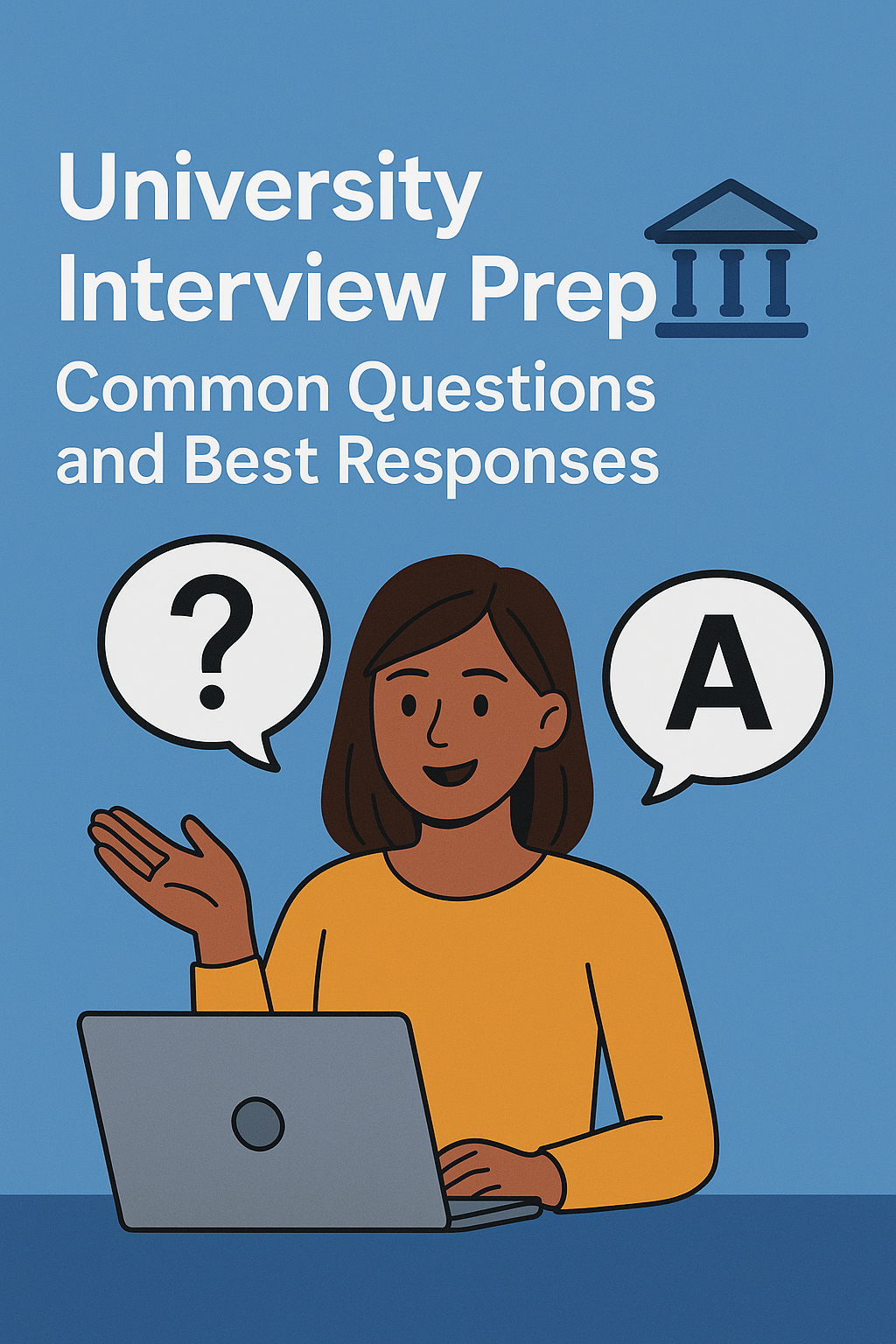1. Introduction
University admission interviews can be make‑or‑break moments. They assess not just academic readiness but communication skills, critical thinking, and cultural fit. Prepare strategically by understanding typical formats, anticipating questions, and practicing responses that highlight your strengths.
This guide outlines common interview types (panel, one‑on‑one, group), sample questions, and best practices for crafting structured, confident answers. With targeted preparation, you’ll enter your interview poised to impress.
2. Interview Formats & Expectations
2.1 Panel Interviews
- Multiple interviewers; diverse perspectives.
- Focus on both depth and breadth of knowledge.
2.2 One-on-One Interviews
- More conversational; opportunity to build rapport.
- Allows deeper dive into specific topics.
2.3 Group Interviews
- Collaborative tasks; observe teamwork and leadership.
- May include group discussions or presentations.
3. Common Questions and How to Structure Responses
3.1 Academic Motivation
- Question: “Why do you want to study [field]?”
- Structure: Personal story → specific interests → future aspirations.
- Example: Link a meaningful project or experience to career goals.
3.2 Strengths and Weaknesses
- Question: “What is your greatest strength/weakness?”
- Framework: Use STAR method; for weaknesses, focus on improvement strategies.
3.3 Behavioral Questions
- Question: “Tell me about a time you faced a challenge.”
- Structure: Situation, Task, Action, Result. Emphasize learning outcomes.
3.4 Current Affairs and Field‑Specific Queries
- Question: “What is a current issue in [field]?”
- Approach: Cite recent developments; show analytical perspective.
3.5 Ethical Dilemmas
- Question: “How would you handle…?”
- Approach: Outline principles, stakeholder analysis, balanced solution.
4. Communication and Body Language
4.1 Verbal Techniques
- Speak clearly, at a moderate pace.
- Use positive language; avoid fillers (“um,” “like”).
4.2 Non‑Verbal Cues
- Maintain eye contact; use natural gestures.
- Sit upright; mirror interviewer tone subtly.
4.3 Listening Skills
- Pause after questions; ask clarifying questions if needed.
- Restate parts of the question before answering.
5. Mock Interviews and Feedback
5.1 Setting Up Practice
- Record yourself answering sample questions.
- Use peer or mentor panels for live simulations.
5.2 Analyzing Performance
- Focus on content, delivery, and confidence.
- Note verbal tics, posture issues, and pacing.
5.3 Iterative Improvement
- Incorporate feedback; refine answers for clarity and depth.
- Practice under timed conditions to build stamina.
6. Day‑of Tips and Final Checklist
- Preparation: Research interviewers and program specifics.
- Materials: Copies of resume, portfolio, references.
- Mindset: Visualize success; deep‑breathing to calm nerves.
